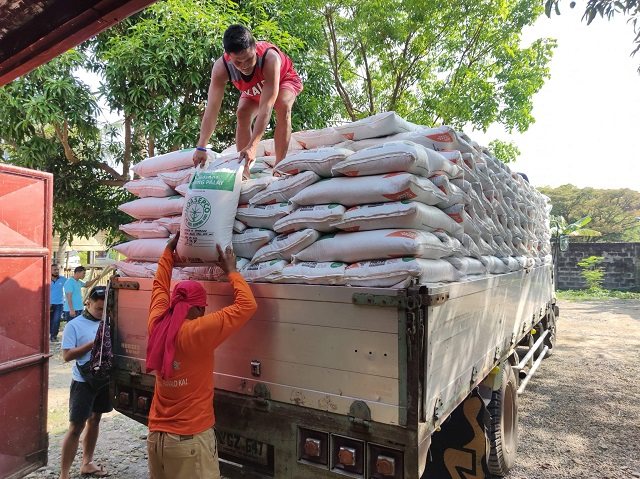
Zamboanga Sibugay and Zamboanga Del Sur have received 162,000 bags of certified inbred seeds, a 138% increase from last year’s 63,000 bags distributed under the Rice Competitiveness Enhancement Fund (RCEF) – Seed Program.
The higher allocation is mainly due to a more focused target in 42 provinces under the RCEF-Seed Program, as part of the Department of Agriculture’s (DA) Integrated Rice Program initiative to provide strategic interventions based on the needs of each province and region.
“Based on the data, the adoption of certified inbred seeds in these provinces is still low. Thus, the opportunity for increasing yield through wider adoption of certified inbred seeds is higher; compared with provinces where the adoption of certified inbred seeds is already high,” said Dr. Flordeliza H. Bordey, head of the RCEF Seed Program Management Office based in the DA-Philippine Rice Research Institute (DA-PhilRice).
Based on a DA-PhilRice study, the use of certified inbred seeds, a seed class with a high purity level, can increase yield by at least 10% compared to using good seeds and farmer’s seeds harvested from previous cropping.
“Rice areas in Region 9 massively expand during wet season as more rainfed farmers cultivate rice. With the increase in volume, more farmers were given access to certified inbred seeds. Hopefully, this will improve the rice productivity of the region, leading to its rice self-sufficiency,” said Dr. Sailila E. Abdula, DA-PhilRice Midsayap branch director.
In 2018, the Zamboanga City government declared a state of calamity due to rice shortage prompting rice prices to surge up to P70/kg. With RCEF pouring support in the Zamboanga Peninsula, Abdula anticipates an increase in rice output from the region.
Among the inbred seeds distributed in Zamboanga were NSIC Rc 402, Rc 442, Rc 216, and Rc 222, which are of high quality and suited to the provinces’ topography.
Zamboanga Sibugay Rice Coordinator Merna Bordon said that DA-PhilRice Midsayap and the local government units were committed to on-time or early delivery of seeds. For the 2021 wet season, they have delivered seeds weeks earlier than expected to ensure its distribution before crop establishment.
“We are happy with the delivery this year, especially that some of our farmers have received certified inbred seeds for the first time and that we have reached far-flung communities with higher seed allocation,” Bordon said.
Meanwhile, 94,000 reading materials were distributed to individual farmers, farm schools, and extension workers as of May 20. These materials will serve as their guide in rice crop management.
The RCEF-Seed Program – a component of the Rice Tariffication Law, allocates P3 billion fund every year for the seed requirements of rice farmers and to help farmers produce rice that can compete in the international market. Farmers under this program can also avail of trainings, machines, and credit with low interest.
The local government units and lawmakers assist in its implementation. PhilRice leads the RCEF-Seed Program, and is the government’s lead agency on rice research and development mandated to help ensure a rice-secure Philippines. With eight stations across the country, its programs and projects are in line with the DA’s “Masaganang Ani, Mataas na Kita” battlecry.




